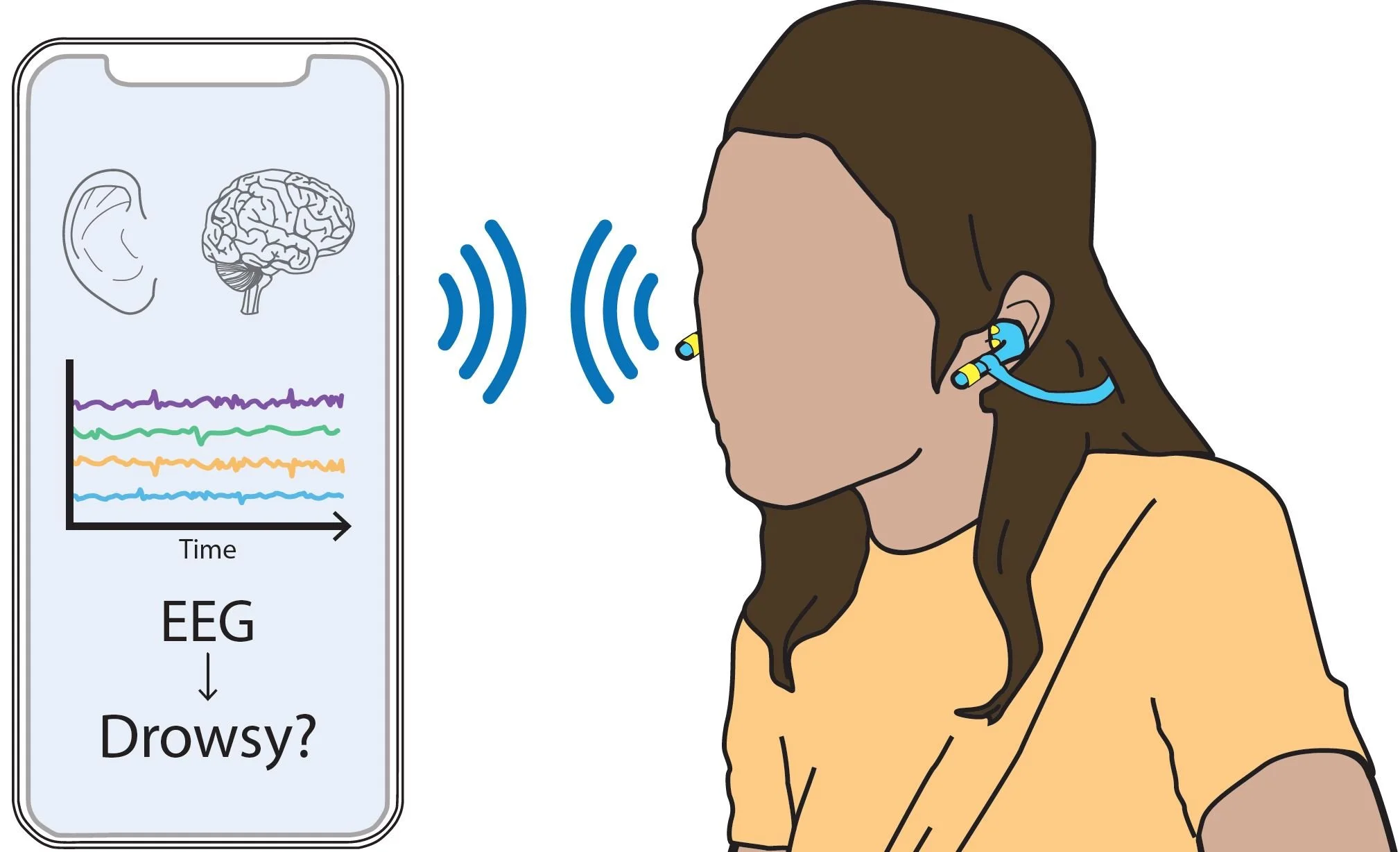Ryan presents drowsiness detection paper at EMBC 2022
Carolyn Schwendeman and Ryan Kaveh’s paper on “Drowsiness Detection with Wireless, User-Generic, Dry Electrode Ear EEG” was presented by Ryan at the 44th International Engineering in Medicine and Biology Conference (EMBC 2022) in Glasgow, Scotland, UK. The presentation was delivered on July 12 as part of the session on “Physiological and Biological Sensing”. Read the paper here.
C Schwendeman*, R Kaveh*, R Muller, “Drowsiness Detection with Wireless, User-Generic, Dry Electrode Ear EEG,” IEEE Int. Conf. in Engineering in Medicine & Biology Society (EMBC), July 2022.
Abstract: Drowsiness monitoring can reduce workplace and driving accidents. To enable a discreet device for drowsiness monitoring and detection, this work presents a drowsiness user-study with an in-ear EEG system, which uses two user-generic, dry electrode earpieces and a wireless interface for streaming data. Twenty-one drowsiness trials were recorded across five human users and drowsiness detection was implemented with three classifier models: logistic regression, support vector machine (SVM), and random forest. To estimate drowsiness detection performance across usage scenarios, these classifiers were validated with user-specific, leave-one-trial-out, and leave-one-user-out training. To our knowledge, this is the first wireless, multi-channel, dry electrode in-ear EEG to be used for drowsiness monitoring. With user-specific training, a SVM achieved a detection accuracy of 95.9%. When evaluating a never-before-seen user, a similar SVM achieved a 94.5% accuracy, comparable to the best performing state-of-the-art wet electrode in-ear and scalp EEG systems.

